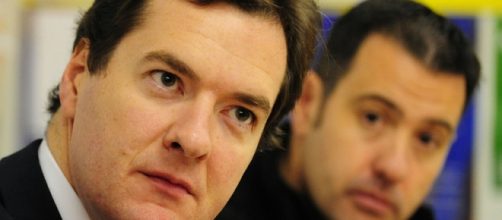THE G0VERNMENT is facing a concerted campaign against its plans to clamp down on jihadi extremism, because its plans are too vague.
Campaigners have united against the planned Extremism Disruption Orders, bringing together a diverse range of organizations including conservative Christians, the country’s leading secularist group and gay rights campaigners.
The Government has indicated its plans to introduce the new Orders, but David Cameron caused anger when he said: “For too long, we have been a passively tolerant society, saying to our citizens: as long as you obey the law, we will leave you alone.”
Campaigners say the new plans are ‘Draconian’ and unnecessary, pointing out that there are already enough laws to catch extremists.
They go so far as to say that the clampdown will threaten free speech and even say that the principles of Magna Carta are being challenged.
Keith Porteous Wood, the executive director of the National Secular Society said the planned laws were “the largest threat to freedom of expression I have ever seen in Britain."
He added: “They could even be used to prevent teachers from talking about same-sex marriage.”
A new umbrella group, Defend Free Speech, was launched this week, and they cite a comment the Chancellor, George Osborne, made in a letter to one of his constituents.
Previewing the new legislation he wrote that it would go “beyond terrorism” and said that it would “eliminate extremism in all its forms”.
But human rights campaigner Peter Tatchell told BlastingNews: "Extremist Disruption Orders are too sweeping and too open to abuse. They risk transforming lawful activities into criminal offences in a way that threatens freedom of expression.”
Stephen Evans, National Secular Society campaigns manager, told us: “There is a clear need to stem the tide of Islamic extremism and radicalisation but a huge arsenal of laws are already in place to prevent the incitement of violence and hatred.
“Rather than new Draconian measures such as Extremism Disruption Orders we need a much more robust civil society response to counter extremist narratives.”
Christian groups are also concerned as many conservative Christians who are opposed to homosexuality have ended up in court for their comments.
Simon Calvert of the Christian Institute commented: “The proposed legislation opens the door to many ordinary people and campaign groups facing the threat of having an EDO placed on them for simply standing up for what they believe."
Peter Tatchell agreed: “Even the mere causing of offence or distress may be sufficient to trigger an EDO.
This could make a range of unpopular, controversial and dissident views liable to an EDO being imposed.”
He told us that he was joining forces with groups that had previously been opponents: “The broad coalition that opposes EDOs is united in defending freedom of expression, despite our disagreements on other issues. We are sinking our differences for the sake of a common good.”
The campaigners are also concerned about the legal test included in the new EDOs. Rather than the criminal law test of ‘beyond reasonable doubt,’ the Government intends that the orders should be imposed ‘on the balance of probability’.
Peter Tatchell said: “Heavy-handed legal restrictions and sanctions on free speech undermine the democratic, liberal values that extremists oppose and that we cherish.”
However, the Government has defended its plans.
Home Office Minister Karen Bradley said: “The proposed powers will be applied on a case by case basis taking into account the specific circumstances and actions involved.
“The legislation will be subject to safeguards to ensure our new powers are used where they are needed to stop extremism and protect the public, including judicial oversight.”
But Stephen Evans warned: “A vague and woolly definition of extremism also runs the risk of making an ‘extremist’ out of almost anyone.”

